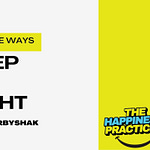In this episode, Phil is joined by William Powell, The Leadership Advisor, and an expert in human flourishing and on imposter syndrome.
Show notes from William Powell - on Human Flourishing and the Imposter Syndrome
Phil: You are an expert in Human Flourishing, which I don't know anyone else even knows about. What is it and why does it matter?
William: Comes from the Greek, focus on the whole person including the environment, when in the work environment when management focuses on the whole person including the environment the whole idea is that human is going to flourish and be profitable
I’ve been applying that across all aspects of my life, my family my business the interconnectedness of everything, how we flourish of our environment .
Phil: How did you get into this, Human Flourishing?
William: I grew up in a poor background, the narrative I told myself and I chased things as a young man that I probably didn’t need and more disruptive than i needed and a I met people that were key in changing the direction
I wrote a book, a kindle book, Personal Ecology, about self leadership and ecology and how the environment around influences you and how you influence it. Fell into it and how can i help other people and how can i help other people manifest it
Phil: Let's talk about imposter syndrome. I suffer from this sometimes. You've publicly said you do too. Let's talk about it.
William: Grew up poor challenging and frustrating, my mom was disabled, grew up in the trailer park getting beat up at school for being the poor kid that wore the same clothes and to have such a clear understanding of poverty at a young age. Creating the narrative in my head that made sense to me, even if it wasn’t accurate. But to get here… the biggest challenge to get here wasn't to get here wasn’t to make the money but to overcome the narrative i had developed form that sense of challenge, that was my biggest obstacle. It is my biggest anxiety and even now it still wants to creep out. It isn’t the narrative that I want.
Phil: Let's talk about how you cope, what are the strategies you use that are successful or even the ones that don’t work and suck?
William: Overcompensate, lizard brain, of course, over coping mechanisms to try deflect and get people to try and cheer you on…. For me, that is my is go to place, when i don’t have to take responsibly. For me it’s about being aware that i am feeding myself a false narrative. It may be differ for other people, understanding what’s your go to place then developing the right place and what's the good self leadership for this, how do I lead the guy in the mirror?
Phil: What are the roadblocks for making things simple?
William: Pace is a big deal. The more I have on my plate the more productive. Legitimately understanding my capacity. For me it was about pace and capacity. The distance between stimulus and response and it may be different for others, you need to know what that trigger is, and no one can say what that is?
Phil: What is the imposter syndrome?
William: Imposter syndrome is defined by what’s the lie in your narrative and we all have that narrative in our brain that it keeps feeding us. Inside that narrative that you start to tell yourself. Self conscious does not understand sarcasm or self deprecating ways. One of the reasons negative self talk can be so destructive.
Be honest. Admit when you aren’t equipped, be willing to be transparent and vulnerable. You aren’t allowing others to flourish by not admitting your vulnerabilities. Admit when you aren’t good at something.
Phil: One bit of advice for leaders to get started down the path of flourishing and really building others around them better ecology.
William: Look at your organization or team If my people were plants and our culture were environment our process would be the climate they have to exist in would we get fined by the epa or not? Would this help them flourish as a human being? Would this find creative outlets for their passion and develop their skills, well rested and contribute to their organization?
More from William Powell
Connect with William Powell on Twitter
Human Flourishing, the 21st century definition of success














Share this post